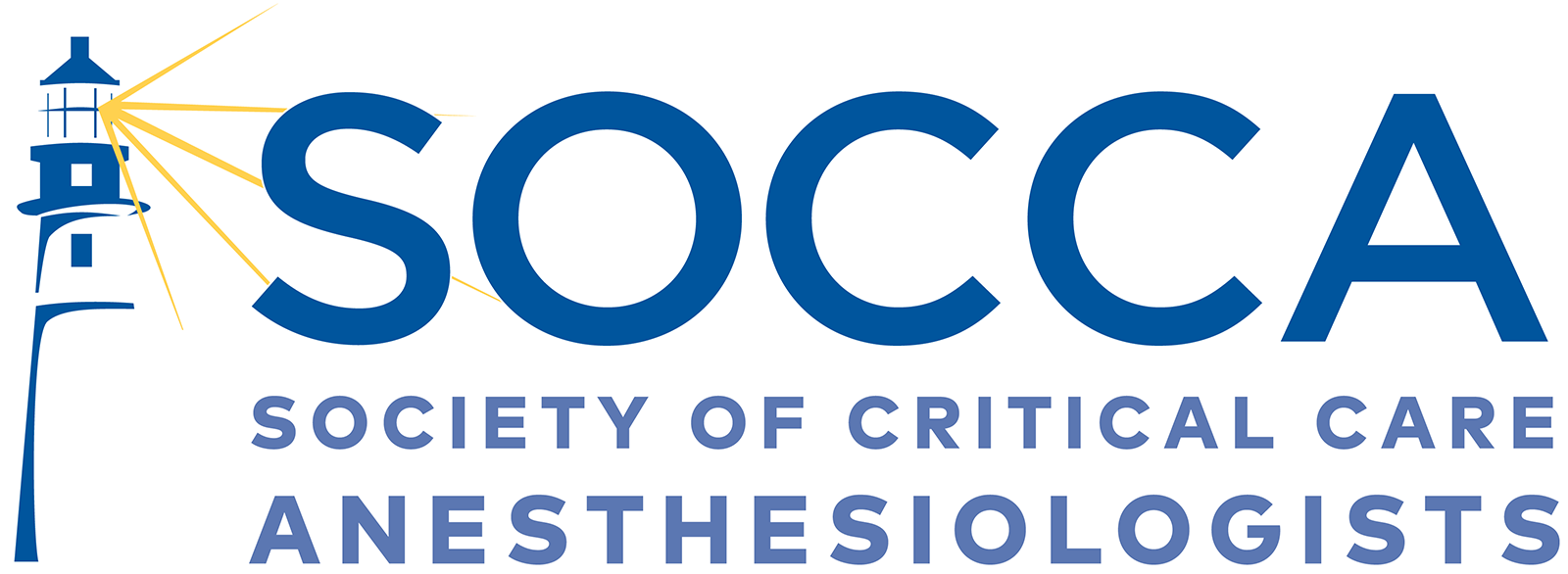Aligned Meeting Day
IARS Aligned Meeting & SOCCA Focus on Critical Care Day – Saturday, April 28
The following sessions are part of the Aligned Meeting Day at the IARS 2018 Annual Meeting and International Science Symposium. SOCCA registered attendees are invited to attend these IARS sessions as part of their SOCCA registration fee.
SOCCA Focus on Critical Care Day
The Society of Critical Care Anesthesiologists (SOCCA) Focus on Critical Care Day on Saturday, April 28 will examine and challenge current practices in critical care and highlight new discoveries in research and education. This dynamic education program will include two Review Course Lecture Sessions, three Problem-Based Learning Discussion Sessions and one Panel presented by the leaders in critical care anesthesia.
Aligned Meeting Day Sessions
7:30 AM – 9:00 AM
Opening General Session and T.H. Seldon Memorial Lecture: Personalizing Health Care in the Era of Big Data
with Dr. Jeffrey R. Balser
Over the past two decades, Dr. Balser has guided expansion of Vanderbilt University School of Medicine research programs in personalized medicine, human subjects research, and population health, moving Vanderbilt University School of Medicine’s ranking to eighth in the nation among U.S. medical schools in total grant support provided through the National Institutes of Health (NIH).
9:30 AM – 12:00 PM
Symposium: AUA: Mitochondria and Bioenergetics in Health and Disease: It’s Not Just a Power Failure!
with Drs. Paul S. Brookes, Elizabeth A. Jonas, Y.S. Prakash, Douglas L. Rothman, and Douglas C. Wallace
This invigorating symposium will highlight important questions relating to mitochondria and bioenergetics that impact the perioperative environment. Examine the roles of altered mitochondrial structure and function as well as bioenergetics and unintended consequences of drugs or other interventions on mitochondria and bioenergetics and how this may help improve and individualize patient care.
12:00 PM – 1:00 PM
Problem-Based Learning Discussion: AUA: Why Study Time Doesn’t Always Lead to Learning: How Do We Help the Struggling Trainee?
with Drs. Ersne Eromo and Daniel Saddawi-Konefka
This hands-on session will provide various self-study methods available to trainees, including relative effectiveness of each technique, offering an approach to unpack a trainee’s study habits and to prepare a study plan for a hypothetical trainee that combines effective learning modalities.
4:00 PM – 5:00 PM
Problem-Based Learning Discussion: AUA: Getting to the Heart of the Matter: Perioperative Focused Cardiac and Pulmonary Ultrasound, and The Hemodynamically Unstable Patient
with Drs. Alexander S. Kuo and Abraham Sonny
Evaluate the role of anesthesiologist-performed focused cardiac and pulmonary ultrasound in the perioperative period and the role of focused ultrasound in hemodynamic assessment for guiding diagnosis and management of undifferentiated shock.
SOCCA Focus on Critical Care Day Sessions
9:30 AM – 10:30 AM
Problem-Based Learning Discussion: SOCCA: To Intubate or Not: Management of Post-Operative Acute Respiratory Failure
with Dr. Kunal Karamchandani
Management of postoperative acute respiratory failure can be challenging. Early recognition and prompt treatment is critical to prevent significant morbidity and mortality. In this case-based session, discuss the principles and utility of non-invasive ventilation (NIV) and high flow nasal cannula (HFNC) in the management of acute hypoxic respiratory failure.
11:15 AM – 12:00 PM
Review Course Lecture: SOCCA: The Tele-Vision: Taking Care to the Patient and Expanding the Scope of the Intensivist
with Dr. Liza M. Weavind
The reality of virtual care is upon us, and it is our responsibility as intensivists to maximize the potential of telemedicine to leverage ourselves and provide care to an ever widening circle of patients, not limited to the critically ill in our ICU’s. Our patients may be acutely deteriorating on a non-monitored floor or being evaluated in an ED. Our input as intensivists, in real time, in remote geographic locations, within or outside of the hospital may be lifesaving. Utilizing telemedicine to take critical care to the patient, rather than bringing the patient to the ICU, should be our goal.
2:00 PM – 3:00 PM
Problem-Based Learning Discussion: SOCCA: The Sweet Escape: A Complicated Case of DKA
with Dr. George W. Williams, II
Join this exciting discussion and examine an intriguing case of diabetic ketoacidosis (DKA). Evaluate a case of a middle-aged man who presents with a preliminarily negative cardiac workup and yet has chest pain. Endocrine, renal and infectious diseases come into play in this real case.
4:00 PM – 5:00 PM
Problem-Based Learning Discussion: SOCCA: Perioperative Renal Replacement Therapy for the Anesthesiologist: Does It Make A Difference?
with Dr. Dragos Galusca
Anesthetic management of high-risk patients undergoing major hepatic surgery can involve the use of perioperative renal replacement therapy (RRT). Examine the risk factors and etiology of renal injury for patients undergoing major (hepatic) surgery during this discussion session.
5:00 PM – 5:45 PM
Review Course Lecture: SOCCA: Heart Failure with Preserved Ejection Fracture (HFpEF) as a Perioperative Risk
with Dr. Aalok Kacha
Heart failure with preserved ejection fraction (HFpEF) accounts for approximately 50% of cases of heart failure. HFpEF confers an increased risk of perioperative morbidity and mortality. Assess how the phenotypes, evaluation, and management of HFpEF is important for the perioperative physician given the increasing prevalence of ICUs.
Plus, A Bonus Focus on Critical Care Session on Sunday, April 29, Complimentary for SOCCA Attendees:
4:00 PM – 5:30 PM
Panel: SOCCA: 50 Years of ARDS: An Update
with Drs. Kunal Karamchandani, Brian Kavanagh, Daniel S. Talmor, Avery Tung, and Michael H. Wall
Despite heightened awareness and extensive research related to ARDS over the last 50 years, ARDS represents an important public health problem globally and is associated with a mortality rate of approximately 40%. ARDS continues to be under-recognized and under-treated in terms of the use of optimal, proven, or recommended approaches to mechanical ventilation. Attend this panel and discover strategies to prevent and treat ARDS.
For More Information or Questions
Annual Meeting Education and General Meeting Inquiries
Phone: 415-296-6910
Email: [email protected]
Registration Inquiries & Support
Phone: 888-665-1371
International Number 801-505-5264
Email: [email protected]
Abstract Submissions
Phone: 415-296-6924 or 415-296-6920
Email: [email protected]
|
